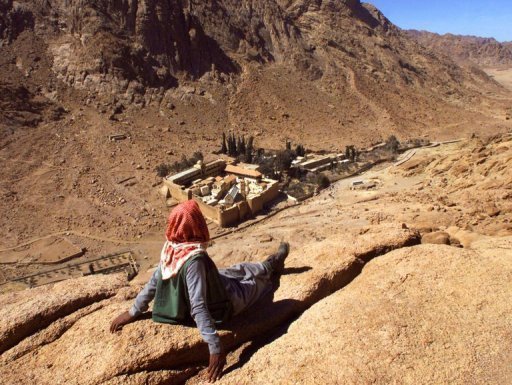CAIRO: Lawyers and judges agreed to end an escalating crisis that led to the closure of several courthouses, following a meeting with Prime Minister Essam Sharaf late Tuesday.
Sharaf met with judges and lawyers separately. Both sides blamed the weeks-long tension on “invisible hands” seeking to unleash chaos in Egypt.
They agreed to form a joint committee of lawyers and judges to rewrite article 18 of the proposed judicial authority law, which had initially sparked the tension. Article 18 gave judges the power to arrest lawyers inside the courthouse if they were found to be in contempt of court.
Head of the Supreme Judiciary Council (SJC) Justice Hossam Al-Gheryany told state news agency MENA that the bill, in which the controversial article was included, was just a draft submitted to the Judges Club but was not presented to the SJC.
He said that the crisis between judges and lawyers is not theirs alone, but relevant to the country as a whole.
In response to judges’ demands, the premier agreed to beef up courtroom security, state-run Al Ahram said. Judges had stopped going to courthouses to protest the lack of security.
“It’s an important issue. These judges are an obstacle to the implementation of justice,” said Khaled Abou Kerisha, former board member of the lawyer’s syndicate, in response to news that judges didn’t appear at courthouses after the decision.
He claimed that lawyers go to court, and judges still do not attend. Thus trials are automatically adjourned.
“There should be a response whether they assign new judges to the cases or by referring those who do not attend the sessions to a judicial disciplinary committee. No one is above the law,” he said.
During their extraordinary general assembly on Friday, the judges decided to continue their strike in response to what they deemed attacks against the judiciary until clear security measures were taken to protect them.
State run news agency MENA, quoted Head of the Judges Club Ahmed El-Zend who is currently on pilgrimage in Mecca, as saying that the club does not accept any alteration of the decision of the extraordinary general assembly.
“No authority or person has the right to change or abolish any such decisions except the judges themselves,” said El-Zend.
He blamed the suspension of activities in courts on the attacks on judges.
Sharaf agreed on Tuesday to Al-Gheryany’s request to form a committee to investigate alleged assaults on judges inside and outside the courtroom.
“Those who triggered this sedition will be punished after the end of the investigations which will take place in the next few days. And [the Judges Club] will follow up closely,” he said.
The Lawyers’ Syndicate had called for an emergency meeting on Tuesday to discuss an appropriate response to the confrontation between them and judges. Friday saw one of the worst escalations of the crisis, as lawyers protested outside the High Court, where judges held their general assembly, one of the judges fired gunshots in the air to disperse the crowd.
The meeting was later canceled after Minister of Local Development Mohamed Ahmed Attiya told independent daily Al-Masry Al-Youm that the crisis about to be resolved.
Lawyers insist that the controversial judiciary bill was going to be sent to the Supreme Council of the Armed Forces (SCAF) instead of waiting for parliamentary approval.
“Nobody can prevent anyone from proposing a bill, but the problem comes when they pressure SCAF by threatening not to supervise the parliamentary elections, and that’s why we interfered,” said Kerisha.
Rumors had circulated that the judges had on Friday threatened not to oversee the parliamentary elections, as mandated by the law. Justice Ahmed Mekky, former head of the Cassation Court, denied the news, saying that the media misunderstood.
“For us, crisis has ended once the judges announced that Article 18 of Justice Ahmed Mekky’s proposed bill was pulled and that they intend to reformulate it. I do not understand why they held an extraordinary general assembly on Friday, if the crisis had already ended, unless they wanted to pressure SCAF,” said Abou Kerisha.
In their extraordinary general assembly on Oct.24, lawyers announced that they would not seek judicial supervision of the syndicate’s elections due on Nov.20.
“Of course we would be happy if they monitor our elections, it would give us great comfort to know that they are truly fair. We still trust our judges,” said Kerisha.
However, during Tuesday’s press conference, Justice Al-Gheryany said that judicial supervision of the lawyers’ syndicate election is the [judges’] job and they are fully committed to their job.
